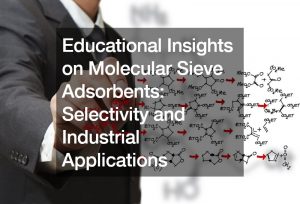Teachers play a crucial role in shaping the future in today’s ever-changing learning landscape. Their dedication shapes young minds, ignites passions, and lays the foundation for a brighter tomorrow.
But the journey to becoming a teacher can be different for each individual. With so many paths, knowing which one is right for you and how long it will take to reach your goal can be tricky. Therefore, understanding every step is essential. Whether you are just starting your journey or already on the way, here is a breakdown of the steps you will take to become a teacher in 2023 and beyond.
- Factors Affecting the Timeline
- Educational and Certification Requirements
- Timeline for Bachelor’s Degree Programs
- Alternate Routes to Teaching
- Timeline for Master’s Degree Programs
- Special Education and Specialized Areas
- Student Teaching and Internships
- Licensure Exams and Certification
- State-Specific Variations
- Continuing Professional Development
Factors Affecting the Timeline
Becoming a teacher involves various factors that shape the path one takes. One of these factors is educational level. If you have a bachelor’s degree, you would usually pursue teaching certification, which takes around 1-2 years. However, if you hold a master’s degree or higher, you may be eligible for expedited programs that shorten the path to certification.
When it comes to subject area and teaching specialization, there’s another layer of variance to consider. The preparation time for core subjects could differ from specialized fields like music or special education. For example, someone who wants to become a history teacher may complete a bachelor’s degree followed by a teaching certification in about 4 years. On the other hand, if you’re aiming to teach advanced sciences, you might need more time for higher education and specialization training.
Intriguingly, alternative pathways further enrich this tapestry. Career changers bringing real-world expertise might opt for intensive teaching programs, abbreviating the traditional trajectory. On the other hand, paraprofessionals stepping into teaching while working can stretch the timeline due to part-time studies.
Educational and Certification Requirements

Becoming an educator involves educational and certification prerequisites that vary based on the teaching level. For those aspiring to be kindergarten teachers, a relevant bachelor’s degree is commonly required, which generally takes around 4 years to complete. Similarly, elementary teachers typically need a bachelor’s degree in education or a subject-related field, spanning about 4 years of study. Meanwhile, preschool teachers might need an associate degree, which usually takes 2 years, or a bachelor’s degree if working in more advanced settings.
One crucial aspect of these requirements is having a bachelor’s degree in education or a related field. This degree provides teachers with the essential pedagogical knowledge and classroom management skills that form the foundation of effective teaching techniques. Moreover, it plays a significant role in teacher retention and career advancement.
Furthermore, research highlights the profound influence of education on teacher effectiveness. According to a study, teachers holding a master’s degree demonstrate a positive correlation with student achievement in high school science subjects. This underscores the significance of continuous learning and advanced degrees in refining teaching practices and fostering better student outcomes.
Timeline for Bachelor’s Degree Programs

A bachelor’s degree is a foundational step to becoming an educator, offering comprehensive knowledge in education or specific subject areas. The duration of these programs typically spans around 4 years of full-time study. Education-focused programs entail coursework to cultivate pedagogical understanding, classroom management skills, and educational psychology. Concurrently, prospective teachers undergo student teaching and field experiences, which provide hands-on exposure to real classroom dynamics, instructional methods, and student engagement strategies. These practical components are vital in bridging theory with practice and honing the art of teaching.
For instance, the Bachelor of Science in Education program takes approximately 4 years at the University of Wisconsin. This program combines educational theory with real classroom experiences to help develop well-rounded educators. Students engage in coursework tailored to their specialization, such as elementary or secondary education in mathematics or English. The program includes a student teaching semester where aspiring teachers work closely with mentor educators to refine their teaching skills in a real-world setting.
Alternate Routes to Teaching
Alternate routes to teaching offer streamlined pathways for career changers or individuals with non-education backgrounds to enter the teaching profession. Post-baccalaureate programs are designed for those who hold a bachelor’s degree in a subject outside of education. These programs condense essential education coursework and teaching experiences, allowing participants to earn teaching certification in less time than a traditional education degree.
Online teacher certification programs are another flexible option. They cater to individuals who require a more adaptable learning format due to work or personal commitments. These programs often blend online coursework with in-person classroom experiences or student teaching, offering convenience without compromising educational quality.
For example, a seasoned biologist aspiring to teach high school science might enroll in a post-baccalaureate program. This program could focus on pedagogical training, classroom management, and education-specific coursework, preparing them to obtain teaching certification more swiftly than pursuing a full education degree.
Similarly, a professional from the business world interested in becoming a middle school math teacher might opt for an online teacher certification program. This route accommodates their schedule while delivering the necessary training and in-classroom experiences to transition seamlessly into teaching.
Timeline for Master’s Degree Programs
A master’s degree in education or specialized subjects is a potent avenue for educators aiming to elevate their teaching prowess and career prospects. The duration of master’s degree programs varies, typically taking 1 to 2 years of full-time study. These programs delve deeper into pedagogical theories, curriculum design, assessment techniques, and educational leadership.
Obtaining a master’s degree offers multifaceted benefits. It provides educators with advanced instructional strategies, fostering innovation in their teaching practices. Additionally, it can open doors to specialized roles, such as curriculum development, educational administration, or educational technology integration. Moreover, many school districts offer increased salary incentives for teachers holding master’s degrees, recognizing the added expertise and commitment to professional growth.
Institutions like Stanford University offer a Master of Arts in Education program, spanning 1 year of intensive study. This program offers diverse tracks like Teacher Education or Learning Design and Technology, enabling educators to tailor their education to their interests and career aspirations. Similarly, Columbia University’s Teachers College offers an array of master’s programs, such as Curriculum and Teaching, to deepen educators’ pedagogical insights and refine their classroom effectiveness.
Special Education and Specialized Areas

Specialized areas within education, such as special education, English as a Second Language (ESL), and bilingual education, demand an extended commitment to training due to their unique challenges and diverse student populations. Pursuing these fields requires an additional year or more of study beyond a standard education degree.
Special education, for instance, involves learning to support students with diverse learning needs. Educators must understand various disabilities, develop tailored instructional strategies, and navigate individualized education plans (IEPs). Similarly, ESL and bilingual education teachers require training in language acquisition methodologies, cultural sensitivity, and strategies to bridge language barriers.
Specialized training is crucial to cater to the diverse needs of students and ensure equitable education. For instance, a special education program might take 2 years to complete, with coursework addressing inclusive education, behavior management, and assistive technology. A master’s program in ESL or bilingual education could span 1-2 years, focusing on linguistics, cultural competence, and language instruction techniques.
The significance of specialized training extends beyond the classroom. It empowers educators to create inclusive environments where all students can thrive. These specialized areas address the unique requirements of diverse student populations, fostering a holistic educational experience that acknowledges individuality and promotes academic success.
Student Teaching and Internships
Student teaching and internships play a crucial role in teacher preparation. They give aspiring educators practical insights and hands-on experience in real classrooms. These immersive experiences help bridge the gap between theory and practice, allowing individuals to apply what they’ve learned, refine their teaching techniques, and develop effective classroom management strategies.
Typically lasting a semester or more, student teaching provides the opportunity to collaborate with mentor educators, engage with diverse student populations, and navigate the challenges and triumphs of daily teaching. This experience fosters adaptability, confidence, and a deeper understanding of the multifaceted role of an educator.
Through student teaching, teachers-to-be learn to tailor lessons to different learning styles, effectively manage classroom dynamics, and address individual student needs. They gain practical skills such as creating engaging lesson plans, delivering content effectively, and assessing student progress. This hands-on experience also hones soft skills like communication, empathy, and problem-solving, which are essential for building strong teacher-student relationships.
For instance, during student teaching, an aspiring elementary teacher might discover innovative ways to make math concepts relatable through hands-on activities, sparking greater student engagement. A future high school English teacher might refine techniques to encourage critical thinking during literary discussions, fostering a dynamic classroom environment.
Licensure Exams and Certification
Licensure exams are a crucial milestone in becoming a teacher, assessing the knowledge and skills needed to lead a classroom effectively. The time required for exam preparation varies but often involves several weeks of focused study. These exams come in various forms, including general knowledge tests, subject-specific assessments, and state-specific exams. Their significance lies in ensuring that educators meet minimum competency standards and can provide quality education to their students.
For instance, the Praxis series is a widely recognized set of exams used in many states, covering subjects from teaching fundamentals to subject-specific knowledge. Additionally, some states have their own customized exams that incorporate specific local requirements.
Pass rates for these exams underscore their challenge. Data indicates that approximately 46% of teacher candidates pass the exam on their first attempt. This emphasizes the importance of thorough preparation, often involving reviewing subject content, practicing test-taking strategies, and addressing potential areas of weakness.
While these exams might present a formidable hurdle, they ultimately contribute to a profession of dedicated, qualified educators. By ensuring that teachers possess the necessary knowledge and skills, licensure exams elevate the standards of education, equipping classrooms with competent and capable leaders who are well-prepared to guide students toward success.
State-Specific Variations
Navigating the path to becoming a teacher involves accounting for state-specific variations in licensure requirements, which can significantly influence the timeline. Each state possesses distinct regulations concerning coursework, exams, and practical experiences. Researching and understanding these requirements is crucial to ensure a smooth journey toward certification.
For instance, the timeline to become a teacher in California might differ from that in New York due to variations in required courses, exams, and application processes. Some states mandate additional coursework in areas like state history or cultural competency.
Researching specific state regulations is essential to avoid unexpected delays. Prospective teachers should consult state education department websites for comprehensive information on prerequisites, exam requirements, application procedures, and additional steps like background checks.
Examples of such state education department websites include the California Commission on Teacher Credentialing for California and the New York State Education Department‘s Office of Teaching Initiatives for New York. These websites offer detailed guidelines and resources, enabling aspiring teachers to plan their journey with precision.
Continuing Professional Development
Continuing professional development is integral for teachers to stay current, refine skills, and foster innovation in education. It encompasses workshops, courses, and certifications that expand pedagogical horizons. This ongoing learning cultivates effective teaching methods, keeps educators informed about evolving practices, and enhances student outcomes.
Resources like GraduateProgram.org offer many opportunities, from online courses to in-person workshops. These platforms enable teachers to delve into specialized areas, embrace modern technology, and collaborate with peers, ultimately enriching the teaching experience and maintaining a dynamic, impactful classroom environment.
In navigating the diverse pathways to becoming a teacher, the above are the intricate timelines, specialized areas, and the significance of ongoing development. From traditional bachelor’s programs to alternative routes and technical degrees, the journey is as unique as the educators it shapes. Embracing the challenges and rewards of this profession, aspiring teachers embark on a transformative odyssey, shaping futures and fostering a lifelong love for learning.


















